
Find Help
More Items From Ergsy search
-
Is aspirin effective in preventing other types of cancer?
Relevance: 100%
-
Has the FDA approved aspirin for cancer prevention?
Relevance: 100%
-
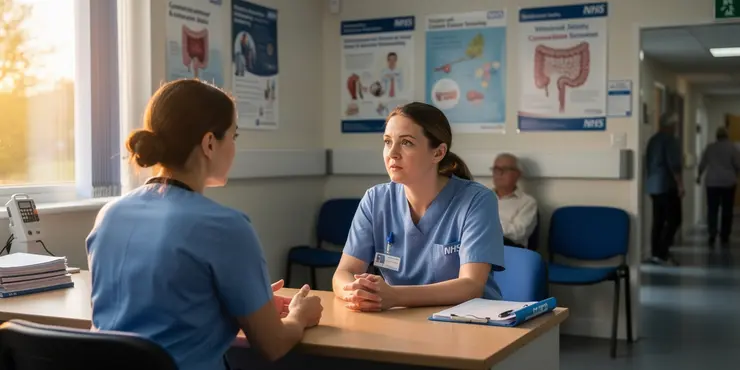
Is aspirin recommended for everyone to prevent colorectal cancer?
Relevance: 100%
-
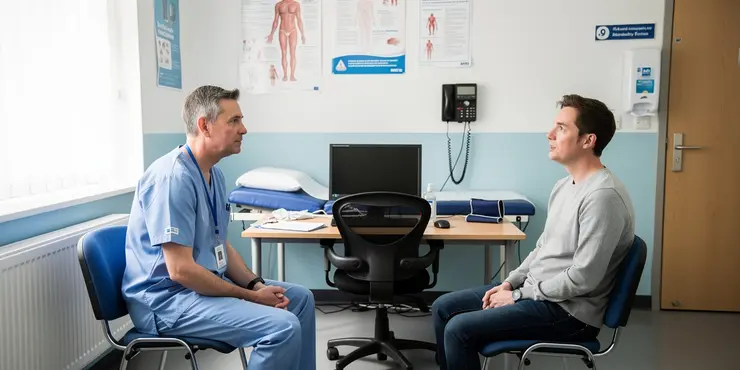
What should I do if I'm considering aspirin for cancer prevention?
Relevance: 99%
-
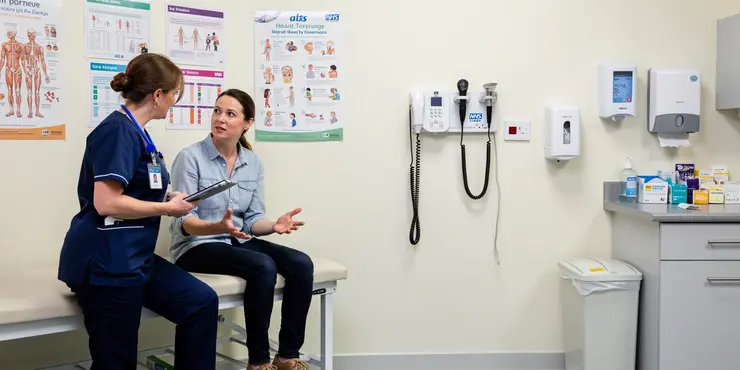
What dosage of aspirin is considered effective for cancer prevention?
Relevance: 96%
-
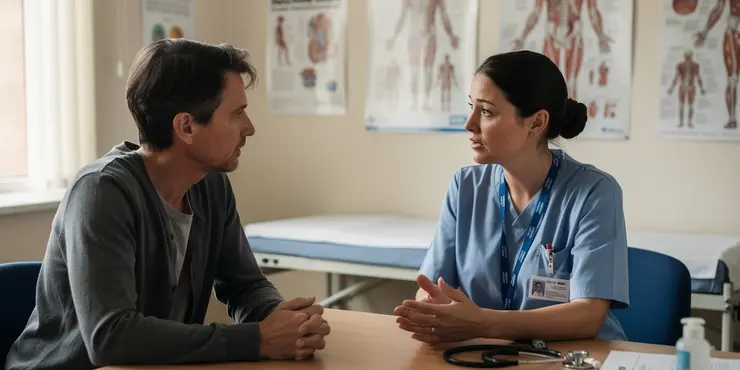
What do health organizations say about aspirin and cancer prevention?
Relevance: 94%
-
How long do studies suggest taking aspirin for cancer prevention?
Relevance: 93%
-
Is aspirin more effective for certain age groups in preventing colorectal cancer?
Relevance: 90%
-
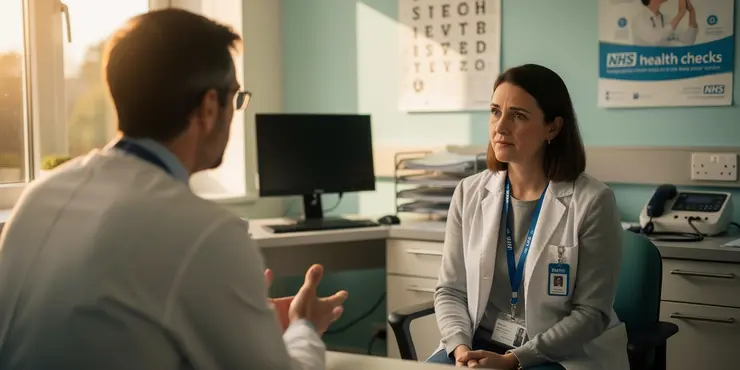
Can aspirin stop colorectal cancer?
Relevance: 87%
-
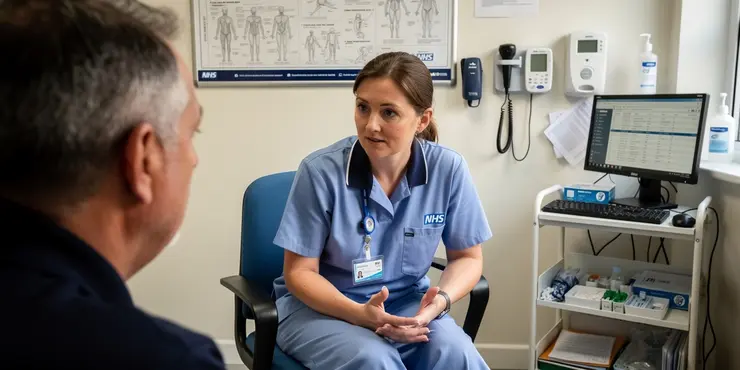
Has aspirin been proven to cure colorectal cancer?
Relevance: 82%
-
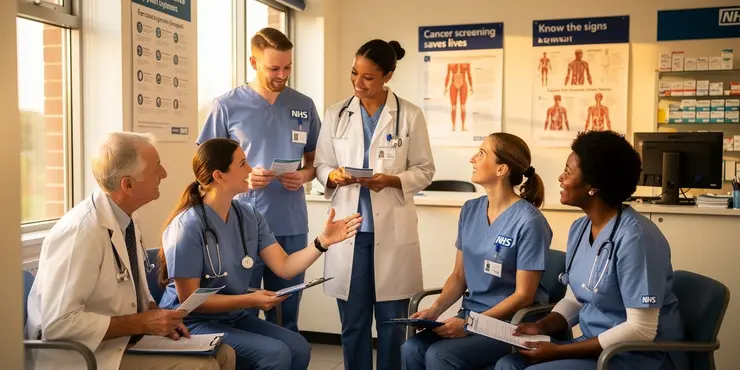
How does aspirin work to reduce cancer risk?
Relevance: 81%
-
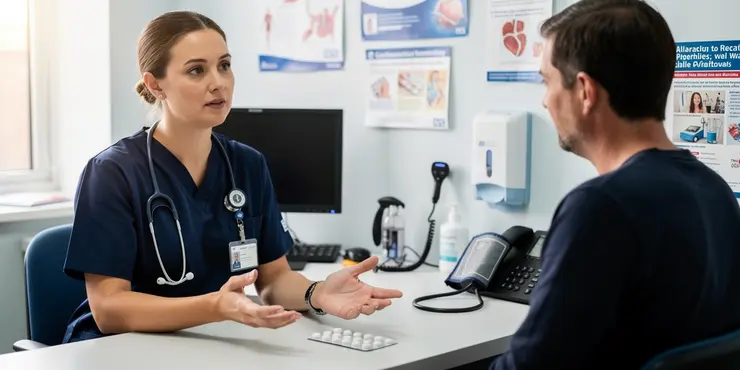
Should people with a family history of colorectal cancer take aspirin?
Relevance: 78%
-
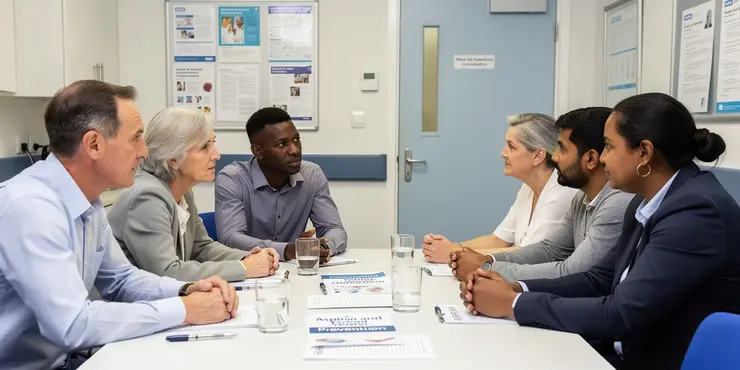
Can aspirin prevent colorectal cancer?
Relevance: 77%
-
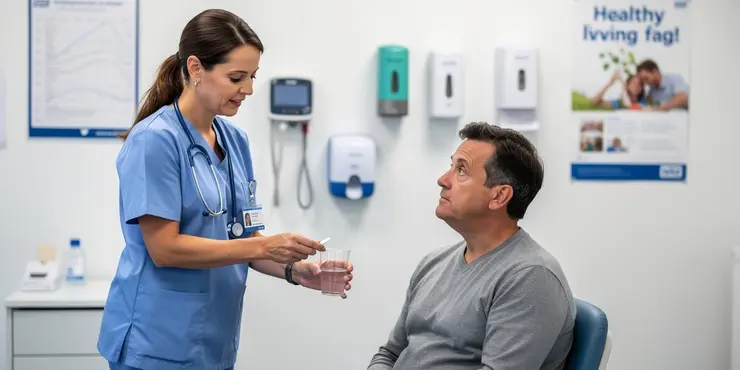
What is Aspirin?
Relevance: 63%
-

Are Aspirin and Ibuprofen the same?
Relevance: 59%
-
Are there ongoing studies about aspirin and colorectal cancer?
Relevance: 59%
-
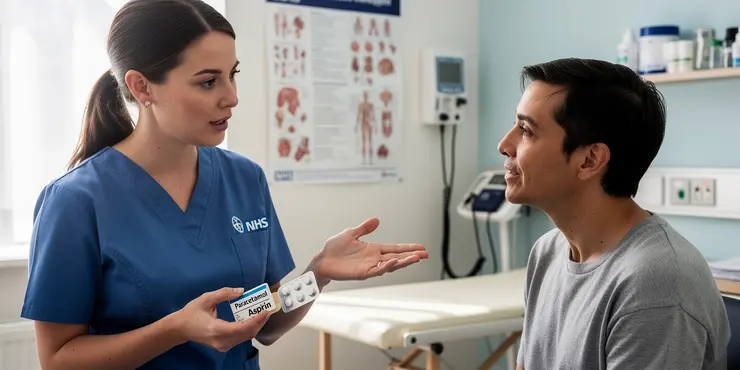
Is Paracetamol the same as Aspirin?
Relevance: 59%
-
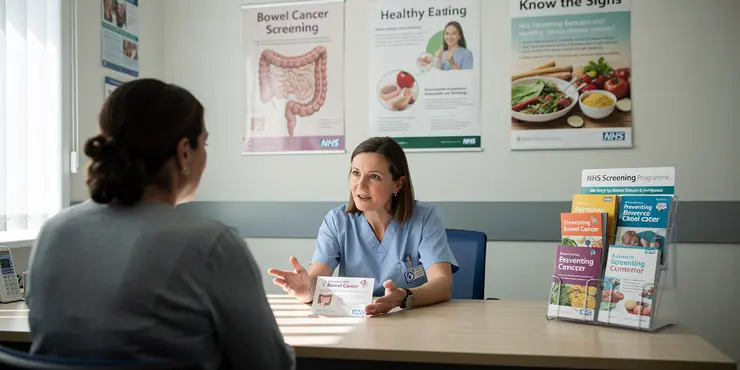
Can bowel cancer be prevented?
Relevance: 57%
-
Can aspirin interact with other medications?
Relevance: 57%
-
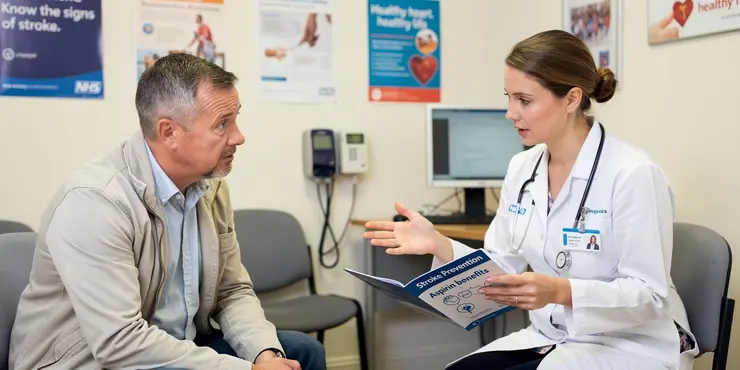
Can aspirin help in reducing the risk of strokes?
Relevance: 56%
-
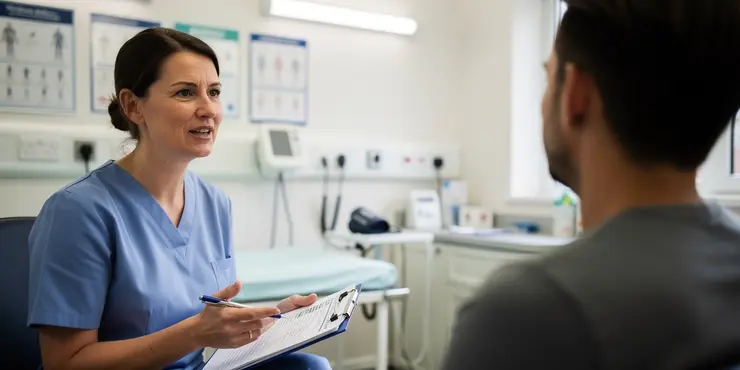
What are the side effects of Aspirin?
Relevance: 55%
-
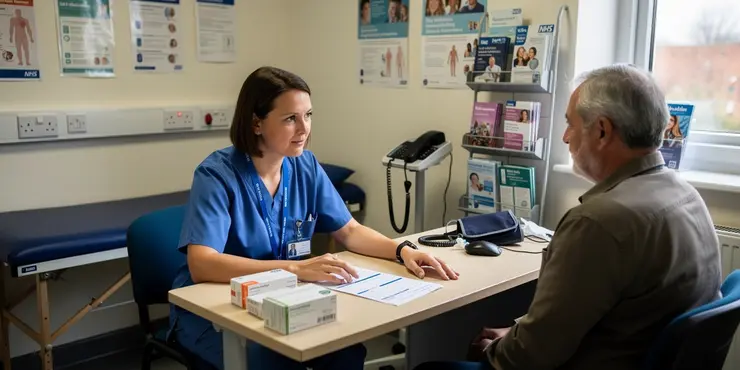
Can I take Aspirin and Ibuprofen together?
Relevance: 53%
-
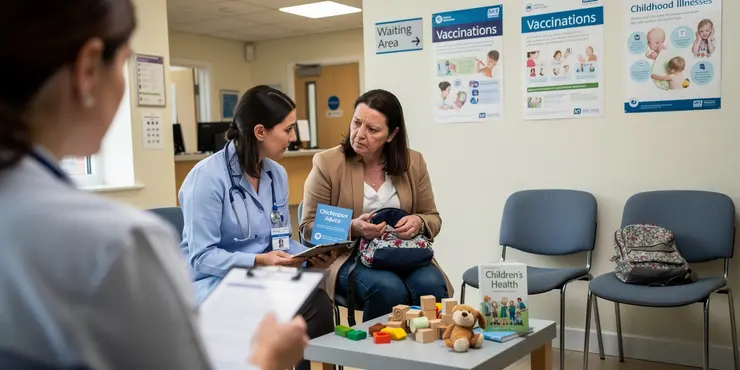
Is it safe to use aspirin to treat chickenpox symptoms?
Relevance: 51%
-
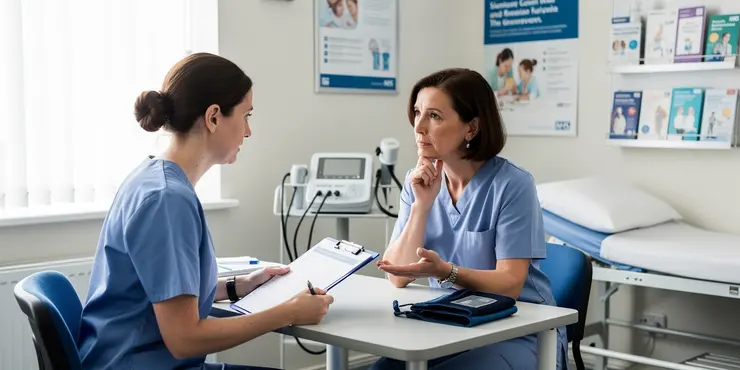
What is the difference between Aspirin, Paracetamol, and Ibuprofen?
Relevance: 51%
-
Should individuals with certain medical conditions avoid aspirin?
Relevance: 51%
-
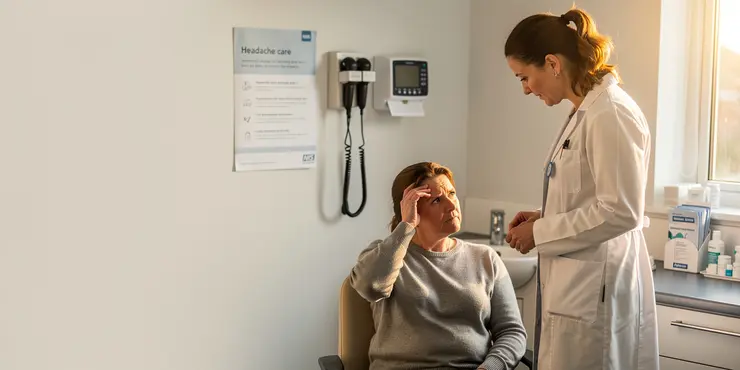
Which one is better for headaches: Aspirin or Paracetamol?
Relevance: 51%
-
What is the difference between aspirin, paracetamol, and ibuprofen?
Relevance: 50%
-

Can lifestyle changes help prevent testicular cancer?
Relevance: 48%
-
Can lifestyle changes also help prevent colorectal cancer?
Relevance: 46%
-
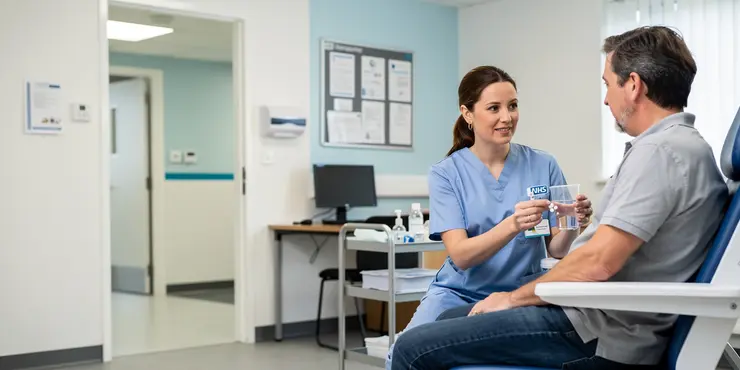
What is Aspirin?
Relevance: 46%
-
Do over-the-counter medications help in preventing heart attacks and strokes?
Relevance: 45%
-
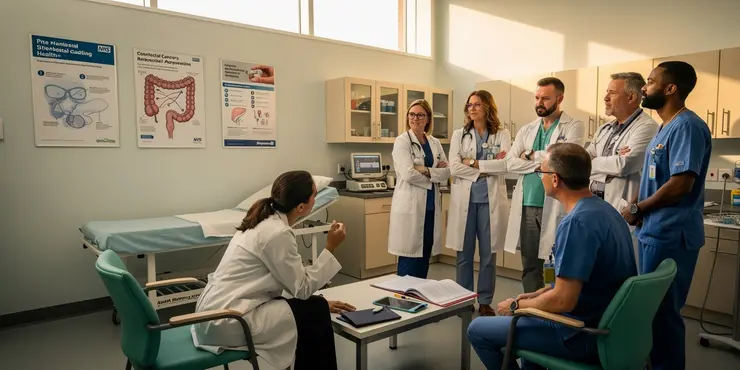
Do all studies agree on aspirin's effectiveness in preventing colorectal cancer?
Relevance: 43%
-

Are there risks associated with taking aspirin regularly?
Relevance: 38%
-
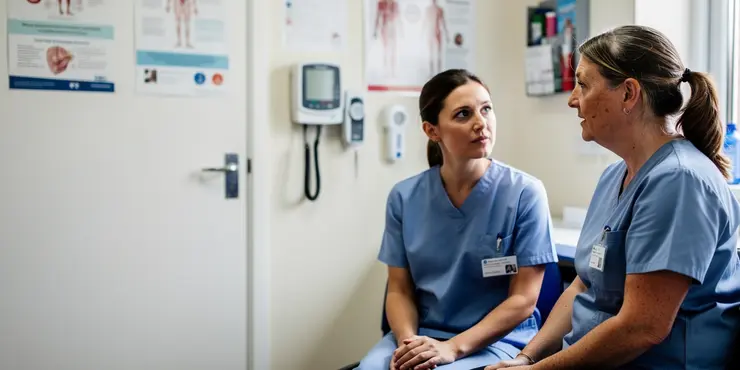
Endometrial Cancer
Relevance: 38%
-
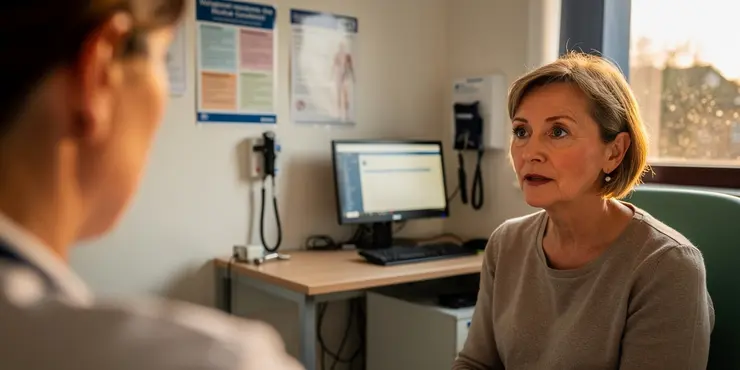
Vaginal Cancer
Relevance: 38%
-
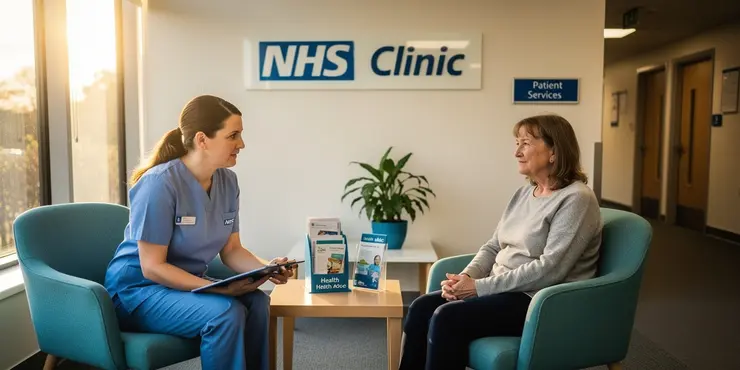
What is Cancer?
Relevance: 38%
-
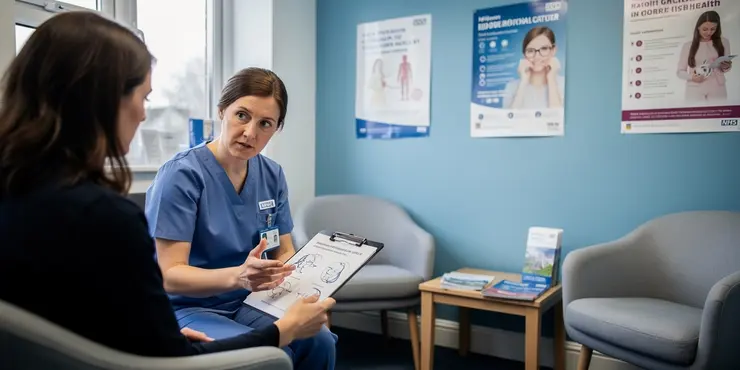
Endometrial Cancer
Relevance: 37%
-
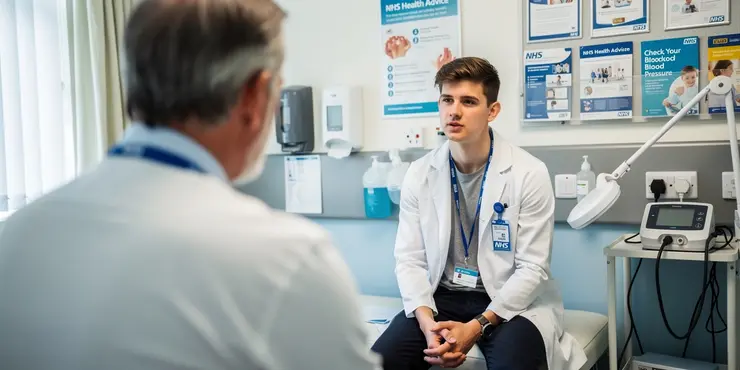
What is testicular cancer?
Relevance: 37%
-
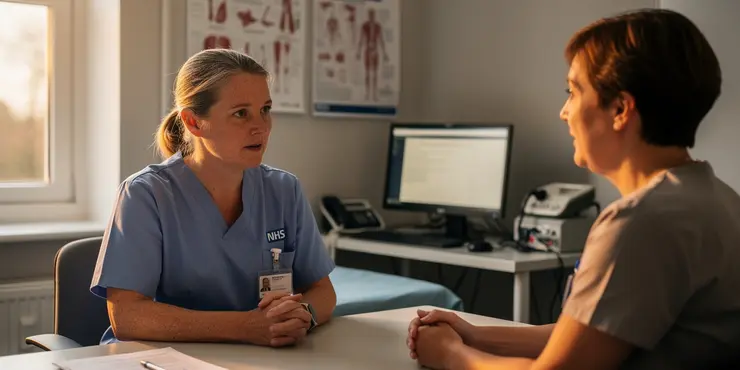
Endometrial Cancer
Relevance: 37%
-
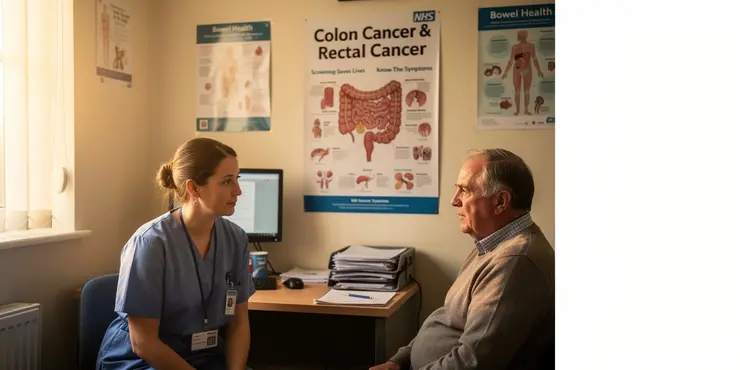
What is the difference between colon cancer and rectal cancer?
Relevance: 37%
Aspirin Use for Cancer Prevention: Duration of Use
In recent years, there has been growing interest in the use of aspirin as a measure for cancer prevention. Aspirin, a common non-steroidal anti-inflammatory drug (NSAID), is often used for its pain-relieving properties and its ability to reduce inflammation. However, studies have also investigated its potential role in reducing the risk of certain types of cancer, notably colorectal cancer.
The duration for which aspirin should be taken for cancer prevention is a subject of ongoing research. According to the results from some long-term studies, consistent aspirin use over a period of five to ten years can significantly reduce the risk of certain cancers, particularly colorectal cancer. However, the exact recommendations can vary depending on several factors, including one's individual health profile and medical history.
The UK National Health Service (NHS) and various medical professionals advise caution with long-term aspirin use. While some evidence supports the benefits of taking aspirin for cancer prevention, this should be weighed against potential risks. Long-term use of aspirin can lead to gastrointestinal issues, such as stomach ulcers and bleeding. Therefore, anyone considering aspirin for cancer prevention should do so under medical supervision.
Studies, such as those conducted by researchers at the University of Oxford, suggest that the benefits of aspirin in reducing cancer risk become more apparent after at least five years of continuous use. These studies highlight a potential reduction in the occurrence of some cancers, but they also emphasize the importance of a tailored approach. For individuals at high risk of colorectal cancer, such as those with a family history of the disease, the benefits might outweigh the risks. Conversely, for people with a low risk of cancer, the potential harms might justify avoiding long-term aspirin use.
It is important to note that aspirin should not be taken as a blanket preventive measure without consulting a healthcare provider. Medical professionals may recommend regular screenings and other preventative measures as part of an overall strategy to reduce cancer risk. Lifestyle factors such as a healthy diet, regular exercise, and avoiding smoking should be prioritized as foundational elements of cancer prevention.
In conclusion, while aspirin has shown promise in reducing the risk of certain cancers when taken over several years, decisions regarding its use for cancer prevention must be individualized. Engaging with healthcare professionals to understand personal risk factors and the potential benefits and drawbacks of aspirin therapy is essential before embarking on long-term use.
Aspirin for Cancer Prevention: How Long to Use It
People are interested in using aspirin to help stop cancer. Aspirin is a medicine that helps with pain. It also helps reduce swelling. Some studies say aspirin might help lower the risk of getting some cancers, like bowel cancer.
Experts are still learning how long people should take aspirin to help with cancer. Some studies say taking aspirin for 5 to 10 years might help lower the risk of some cancers, like bowel cancer. But, everyone is different. It may depend on your health and medical history.
Doctors and the NHS say to be careful with taking aspirin for a long time. While aspirin might help with cancer, it can also cause problems like stomach pain or bleeding. So, it's important to talk to a doctor if you want to take aspirin to help prevent cancer.
Researchers from places like the University of Oxford found that taking aspirin for more than 5 years might reduce cancer risk. But, each person needs a plan that fits them. If someone has a family history of bowel cancer, taking aspirin might help more. If someone doesn’t have a high cancer risk, the side effects might be worse than the benefits.
Remember, do not take aspirin to stop cancer without talking to a doctor. They might suggest other ways to stay healthy, like regular check-ups. Eating healthy food, exercising, and not smoking are also important to help prevent cancer.
To sum up, aspirin might help lower the risk of some cancers. But decisions about taking aspirin should be personal. Talk to a doctor to learn what’s best for you. They can help you understand the good and bad sides of taking aspirin for a long time.
Frequently Asked Questions
What is aspirin commonly used for?
Aspirin is commonly used for pain relief, reducing inflammation, and lowering fever. It is also used to reduce the risk of heart attacks and strokes.
Can aspirin be used for cancer prevention?
Some studies suggest that aspirin may help lower the risk of certain types of cancer, particularly colorectal cancer, when used over a long period.
How long do studies suggest taking aspirin for cancer prevention?
Studies suggest that taking low-dose aspirin for at least 5 to 10 years may have protective effects against certain types of cancer.
Which types of cancer might aspirin help prevent?
Aspirin has been studied primarily for the prevention of colorectal cancer, but there is some evidence it may also affect other cancers such as esophageal, gastric, and possibly prostate cancer.
What dose of aspirin is recommended for cancer prevention?
The typical dose for cancer prevention is low-dose aspirin, usually 75-100 mg daily. However, it's crucial to follow a healthcare provider's advice.
Are there risks to taking aspirin for an extended period?
Yes, long-term aspirin use can increase the risk of gastrointestinal bleeding and hemorrhagic stroke. It is essential to weigh these risks against potential benefits with a doctor.
Who should consider taking aspirin for cancer prevention?
Individuals with a higher risk for certain cancers, particularly colorectal cancer, might consider aspirin therapy, but it should be under a healthcare provider's guidance.
Is it safe for everyone to take aspirin for cancer prevention?
No, aspirin is not safe for everyone. People with certain medical conditions or on specific medications should avoid aspirin unless advised by a healthcare professional.
What are the common side effects of taking aspirin?
Common side effects include stomach pain, heartburn, nausea, vomiting, and potential gastrointestinal bleeding.
How does aspirin work to prevent cancer?
The exact mechanism is not fully understood, but aspirin's anti-inflammatory properties and its ability to inhibit platelet aggregation may play a role in preventing the development of cancer cells.
Have all studies agreed on aspirin’s cancer prevention benefits?
Not all studies have found the same benefits; research results can vary, and aspirin's effect may differ based on individual risk factors and cancer types.
Should healthy individuals take aspirin to prevent cancer?
Healthy individuals should not take aspirin solely for cancer prevention without consulting a healthcare provider due to possible risks and side effects.
Can lifestyle factors influence the effectiveness of aspirin in cancer prevention?
Yes, factors like diet, exercise, smoking, and alcohol consumption can influence cancer risk and interact with aspirin's potential preventive effects.
Is there a specific age when starting aspirin therapy for cancer prevention is most beneficial?
Some guidelines suggest that starting after age 50 and continuing until age 70 may be beneficial, particularly for colorectal cancer, pending a physician's advice.
Are there guidelines from major health organizations regarding aspirin use for cancer prevention?
Organizations like the U.S. Preventive Services Task Force provide guidelines on aspirin use for cancer prevention, primarily focused on balancing benefits and risks.
Can I stop taking aspirin if I experience side effects?
If you experience side effects, you should contact your healthcare provider to discuss whether you should stop or adjust your aspirin regimen.
Is aspirin therapy for cancer prevention a suitable replacement for regular cancer screenings?
No, aspirin should not replace regular cancer screenings; these screenings are crucial for early detection and prevention strategies.
How should individuals make a decision about taking aspirin for cancer prevention?
Decisions should be based on a thorough discussion with a healthcare provider, considering personal health history, risks, and current guidelines.
What should I discuss with my doctor if considering aspirin for cancer prevention?
Discuss your cancer risk factors, personal and family medical history, possible side effects, and how aspirin use aligns with your overall health strategy.
How often should someone taking aspirin be monitored by a healthcare provider?
Regular follow-up appointments are recommended to monitor for potential side effects and adjust the therapy as needed, typically every few months or annually.
What is aspirin used for?
Aspirin is a type of medicine.
People use aspirin to help with pain.
Aspirin can also help lower fever.
Sometimes, people take aspirin to stop getting sick in the heart.
If you are not sure about taking aspirin, ask a grown-up or a doctor.
You can use a picture or drawing to remember what aspirin does.
Aspirin is a medicine that helps with pain. It can make swelling go down and bring down a fever. It also helps stop heart attacks and strokes.
If you find it hard to read, you can use tools that read the text out loud or make the words bigger. These tools can help you understand better.
Can aspirin help stop cancer?
Aspirin is a medicine. Some people think it might help stop cancer. But it is important to talk to a doctor before using aspirin for this. A doctor can give you the best advice.
If you find reading hard, you can ask someone to read with you. You can also use tools like audiobooks or read-aloud apps to help understand better.
Aspirin might help if you take it for a long time. It could lower the chance of getting some kinds of cancer, like bowel cancer.
How long should you take aspirin to help stop cancer?
Some studies say that taking a small amount of aspirin every day for 5 to 10 years might help protect against some kinds of cancer.
How can aspirin help stop some cancers?
Aspirin has been studied mostly to stop bowel cancer, but it might also help with other types of cancer. These include esophagus cancer, stomach cancer, and maybe prostate cancer.
If reading is hard, try these tips:
- Read one sentence at a time.
- Use your finger to follow along the words.
- Ask someone to read with you.
How much aspirin should I take to stop cancer?
If you want to stop cancer, you might take a small aspirin pill every day. The usual amount is 75-100 mg. But always listen to what your doctor says.
Is it safe to take aspirin for a long time?
Aspirin can help some people, but taking it for a long time can have risks.
Here are some things to know:
- Aspirin might hurt your stomach.
- It can cause bleeding inside your body.
- Sometimes, it can make you feel dizzy or cause headaches.
If you need to take aspirin for a long time:
- Ask your doctor if it's safe for you.
- Tell your doctor if you feel different or sick.
- Use tools to remind you to take the right amount.
Yes, taking aspirin for a long time can sometimes make you bleed inside your stomach or have a bleeding stroke. It is important to talk to a doctor about the good and bad effects before you start taking it.
Who should think about taking aspirin to help stop cancer?
Taking aspirin might help some people. It is important to talk to a doctor first.
Here are some tools and tips to help you understand:
- Ask Questions: If you do not understand, ask someone to explain.
- Use Simple Words: Try to use words you know. It can make things clearer.
- Talk to a Doctor: They can help you learn more about aspirin and cancer.
If a person has a greater chance of getting some types of cancer, like bowel cancer, they might think about taking aspirin. But they should talk to a doctor about it first.
Is it okay for everyone to take aspirin to stop cancer?
Not everyone can take aspirin safely.
Ask a doctor if aspirin is safe for you.
Some people should not take aspirin. It might make them sick.
Talking to a doctor is a good idea.
They can help you understand if aspirin is right for you.
Aspirin is not safe for everyone. If you have some health problems or take certain medicines, you should not take aspirin. Always ask your doctor before taking it.
What happens when you take aspirin?
Aspirin can make some people feel unwell. Here are things that might happen:
- Your tummy might hurt.
- You might feel sick.
- You could get a headache.
- Your skin might itch.
- You might bruise easily.
If you feel unwell, ask a grown-up or a doctor for help.
Sometimes, this medicine can hurt your tummy. You might feel a burning feeling in your chest, feel sick, or even throw up. In some cases, it can make your tummy bleed.
How does aspirin stop cancer?
Aspirin is a kind of medicine. It helps stop some cancers from growing.
Doctors think aspirin does this by stopping bad cells from dividing too much. Bad cells can turn into cancer if they grow too fast.
To learn more, you can:
- Watch videos for kids about cancer and medicine.
- Ask a grown-up or a teacher to explain.
- Use apps that read for you.
We don't know exactly how it works. But aspirin might help stop cancer by reducing inflammation and stopping blood cells from clumping together.
Do all studies say aspirin helps stop cancer?
Sometimes, studies do not show the same results. Research can be different. How aspirin works can change depending on a person's health and the type of cancer.
Is it good for healthy people to take aspirin to stop cancer?
Aspirin is a type of medicine. Some people wonder if taking aspirin can stop them from getting cancer. It is important to talk to a doctor before taking any medicine.
Things you can do:
- Ask your doctor if aspirin is right for you.
- Learn more about other ways to stay healthy.
- Write down any questions you have about health and ask someone to help you find the answers.
People who are healthy should not take aspirin just to stop cancer. This is because aspirin can be risky and have side effects. Talk to a doctor before you decide to take aspirin.
Can the way we live change how well aspirin works to stop cancer?
Here's a simple way to understand:
- Healthy Choices: Eating good food, exercising, and not smoking can help us stay well.
- Aspirin: It's a pill that some people take to help stop cancer.
- Working Together: Healthy choices and aspirin might work better when used together to prevent cancer.
Here are some tools to help:
- Colorful Charts: Use pictures and colors to remember information.
- Support Buddy: Talk with someone who can help explain things.
Yes, things like what we eat, exercise, smoking, and drinking alcohol can change the chance of getting cancer. They can also change how well aspirin might help to stop cancer.
Here are some tools and tips to help you understand:
- Use simple language: Try to read slowly and use words you know.
- Break it down: Look at one idea at a time.
- Ask someone: It can help to talk about it with a friend or adult.
- Use a dictionary: Look up words you don't understand.
What is the best age to start taking aspirin to help stop cancer?
Doctors say it can be good to check for bowel cancer from age 50 to 70. It's still important to talk to your doctor about it.
Can big health groups tell us if aspirin helps stop cancer?
Groups like the U.S. Preventive Services Task Force help people understand when to use aspirin to stop cancer. They make sure the good things about using aspirin are more than the bad things.
Can I stop taking aspirin if it makes me feel bad?
If taking aspirin makes you feel bad, talk to your doctor or nurse. They can help you decide if you need to stop or change how you take it.
Can taking aspirin instead of having regular cancer checks keep you safe from cancer?
It's important to have regular cancer checks at the doctor. These checks help find cancer early when it's easier to treat.
Aspirin is a medicine some people take. It might help stop cancer, but it does not replace regular cancer checks.
Always talk to your doctor before taking aspirin. Your doctor can tell you what is best for you.
Use tools like a calendar or a simple reminder app to keep track of doctor check-ups.
No, aspirin should not be used instead of regular cancer checks. These checks are very important to find cancer early and help stop it.
How can people decide if they should take aspirin to stop cancer?
Aspirin might help stop cancer, but it’s not for everyone. Here’s what to do:
- Talk to Your Doctor: Always ask your doctor first. They can tell you if aspirin is good for you.
- Think About Your Health: Some people have health problems that make aspirin a bad choice. Your doctor will help you know if it’s safe.
- Ask Questions: It’s okay to have questions! Write them down so you remember to ask your doctor.
- Learn Together: Bring a friend or family member when you talk to the doctor. They can help you listen and remember what the doctor says.
- Tools to Help You: You can use voice recorders or take notes to remember important information.
Deciding to take aspirin is important. Make sure to get help and talk to people you trust.
It's important to talk with your doctor before making decisions. Think about your health, any risks, and what the latest advice is.
What should I talk about with my doctor if I want to take aspirin to stop cancer?
Talk about what might make you more likely to get cancer. Think about your own and your family's health. Ask about any side effects. See how taking aspirin fits with keeping you healthy.
How many times should a doctor check on someone taking aspirin?
Taking aspirin can affect your health. It is important for a doctor or nurse to check on you. Here are some helpful tips: - **Regular Check-Ups**: Talk to your doctor or nurse often. They will let you know how you are doing. - **Write Down Your Questions**: If you have questions, write them down. Ask your doctor at your next visit. - **Use a Calendar**: Mark the days you visit the doctor on a calendar. This can help you remember your appointments.It is good to go back to the doctor often. This is to check if there are any problems or if the treatment needs to change. This can be done every few months or once a year.
If reading is hard, you can try using audiobooks or text-to-speech apps. You can also ask someone you trust to help read it with you.
Useful Links
This website offers general information and is not a substitute for professional advice.
Always seek guidance from qualified professionals.
If you have any medical concerns or need urgent help, contact a healthcare professional or emergency services immediately.
Some of this content was generated with AI assistance. We’ve done our best to keep it accurate, helpful, and human-friendly.
- Ergsy carfully checks the information in the videos we provide here.
- Videos shown by Youtube after a video has completed, have NOT been reviewed by ERGSY.
- To view, click the arrow in centre of video.
- Most of the videos you find here will have subtitles and/or closed captions available.
- You may need to turn these on, and choose your preferred language.
- Go to the video you'd like to watch.
- If closed captions (CC) are available, settings will be visible on the bottom right of the video player.
- To turn on Captions, click settings .
- To turn off Captions, click settings again.
More Items From Ergsy search
-
Is aspirin effective in preventing other types of cancer?
Relevance: 100%
-
Has the FDA approved aspirin for cancer prevention?
Relevance: 100%
-

Is aspirin recommended for everyone to prevent colorectal cancer?
Relevance: 100%
-

What should I do if I'm considering aspirin for cancer prevention?
Relevance: 99%
-

What dosage of aspirin is considered effective for cancer prevention?
Relevance: 96%
-

What do health organizations say about aspirin and cancer prevention?
Relevance: 94%
-
How long do studies suggest taking aspirin for cancer prevention?
Relevance: 93%
-
Is aspirin more effective for certain age groups in preventing colorectal cancer?
Relevance: 90%
-

Can aspirin stop colorectal cancer?
Relevance: 87%
-

Has aspirin been proven to cure colorectal cancer?
Relevance: 82%
-

How does aspirin work to reduce cancer risk?
Relevance: 81%
-

Should people with a family history of colorectal cancer take aspirin?
Relevance: 78%
-

Can aspirin prevent colorectal cancer?
Relevance: 77%
-

What is Aspirin?
Relevance: 63%
-

Are Aspirin and Ibuprofen the same?
Relevance: 59%
-
Are there ongoing studies about aspirin and colorectal cancer?
Relevance: 59%
-

Is Paracetamol the same as Aspirin?
Relevance: 59%
-

Can bowel cancer be prevented?
Relevance: 57%
-
Can aspirin interact with other medications?
Relevance: 57%
-

Can aspirin help in reducing the risk of strokes?
Relevance: 56%
-

What are the side effects of Aspirin?
Relevance: 55%
-

Can I take Aspirin and Ibuprofen together?
Relevance: 53%
-

Is it safe to use aspirin to treat chickenpox symptoms?
Relevance: 51%
-

What is the difference between Aspirin, Paracetamol, and Ibuprofen?
Relevance: 51%
-
Should individuals with certain medical conditions avoid aspirin?
Relevance: 51%
-

Which one is better for headaches: Aspirin or Paracetamol?
Relevance: 51%
-
What is the difference between aspirin, paracetamol, and ibuprofen?
Relevance: 50%
-

Can lifestyle changes help prevent testicular cancer?
Relevance: 48%
-
Can lifestyle changes also help prevent colorectal cancer?
Relevance: 46%
-

What is Aspirin?
Relevance: 46%
-
Do over-the-counter medications help in preventing heart attacks and strokes?
Relevance: 45%
-

Do all studies agree on aspirin's effectiveness in preventing colorectal cancer?
Relevance: 43%
-

Are there risks associated with taking aspirin regularly?
Relevance: 38%
-

Endometrial Cancer
Relevance: 38%
-

Vaginal Cancer
Relevance: 38%
-

What is Cancer?
Relevance: 38%
-

Endometrial Cancer
Relevance: 37%
-

What is testicular cancer?
Relevance: 37%
-

Endometrial Cancer
Relevance: 37%
-

What is the difference between colon cancer and rectal cancer?
Relevance: 37%


